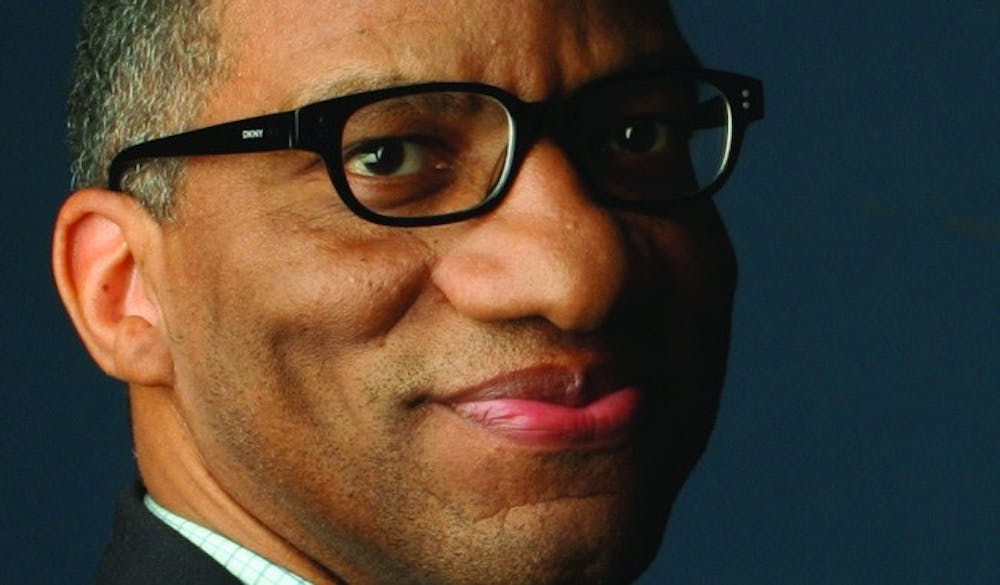WHO: Wil Haygood, author and associate producer of his book’s film adaptation
WHAT: Haygood will speak about his book and movie, “The Butler”
WHEN: 7 tonight
WHERE: Pruis Hall
Free and open to the public
Ball State bookstore will sell his book for $14.50 at the event
For more information on the event, contact the Excellence In Leadership organization or visit facebook.com/bsueil
It took 57 phone calls for journalist Wil Haygood to find Eugene Allen, a butler who worked at the White House during eight different presidencies. In 2008, Haygood found him and his wife just in time and interviewed them days before she died in her sleep. Two years later, Allen died at age 90.
Haygood shared Allen’s story in a Washington Post article in 2008, and it became a worldwide hit in newspapers. In 2013, it made its way on the big screen over the summer with director Lee Daniels’ version of the story.
Haygood will speak about his book, leadership, civil rights and the idea that all can lead through service at 7 tonight at Pruis Hall. The event is free and open to the public. Haygood also will sign books following his presentation, and the Ball State Bookstore will sell books at the event for $14.50.
Reporter Lindsey Riley asked Haygood questions about his life in journalism and “The Butler” story.
Q: How did you become interested in journalism?
A: I had no idea I was going to go into writing. When I came out of college, I majored in urban planning, I had three or four small jobs in my hometown of Columbus, Ohio — one of them at a newspaper. I went to New York City to spread my wings and went through an executive training program at Macy’s. I was fired from the job [because I] wasn’t very good at retail and had to focus my vision on what I wanted to anchor myself to in life. I looked back over my life, asked myself what I liked and that was writing. I made the determination to get back into journalism and started writing newspaper editors around the country. I heard back from one with the Charleston, W.Va., Gazette, and I started there as a copy editor in 1982.
Q: “The Butler: A Witness to History” is such an amazing story. What inspired you to write it?
A: I was working on the [President Barack] Obama campaign trail for the Washington Post in 2008, and the plane landed in North Carolina for a big rally. After the rally, I walked outside and saw some young ladies crying. I asked them why they were crying, and they said that their fathers didn’t want them to support this African-American candidate. These three young white women were obviously standing up to their fathers’ stereotypes, and I thought it was a very powerful movement and heroic of them. Right then and there, I thought that then-Sen. Obama would win the race. I wanted to find someone from the era of segregation who not worked in Washington, but the White House itself. I wanted to find a figure from the backstages of history. I was just determined to search every part of the country because I knew there was someone who worked in the White House before you could even dream that there would be an African-American president in the Oval Office.
Q: How did you find Eugene Allen and his empowering journey?
A: I started making a bunch of phone calls and found the name of Eugene Allen. The person who told be about him was in Tampa, [Fla.], and said that he had worked for three presidents. They had it wrong, of course, because he actually worked for eight presidents. I called him, and he happened to live in Washington, D.C., with his wife of 65 years. The original article was published on Nov. 7, 2008, on the front page of The Washington Post and it was called “A Butler Well Served by this Election.”
Q: What did you learn from Allen and his story?
A: I learned that there’s great heroism and power in consistency. Eugene never missed a day of work in over 34 years at the White House. He loved his country even when his country’s laws were not on his side. I think that is a very powerful definition of being a true patriot. I also learned how good the world can be because the story was reprinted in newspapers all over the world, and Eugene received sacks full of letters from people worldwide, and they were so taken back by his story and thanked him for his service to his country. The letters would come to my newspaper desk and once a week, I would take the letters to him and we would read them together. It was very touching as a journalist.
Q: What advice do you have for student journalists who hope to have as successful of a career?
A: I think that it is important for the young journalists just starting out to find a story that means a lot to them on an emotional level. There will be stories that you are assigned to by editors, but there will also be stories that you want to come up with, the ones that you want to create your own road to get to. “The Butler” was an idea I came up with and thankfully, my editor liked the idea. When you come up with your own story ideas, it seems like you run a little bit harder at that story.





